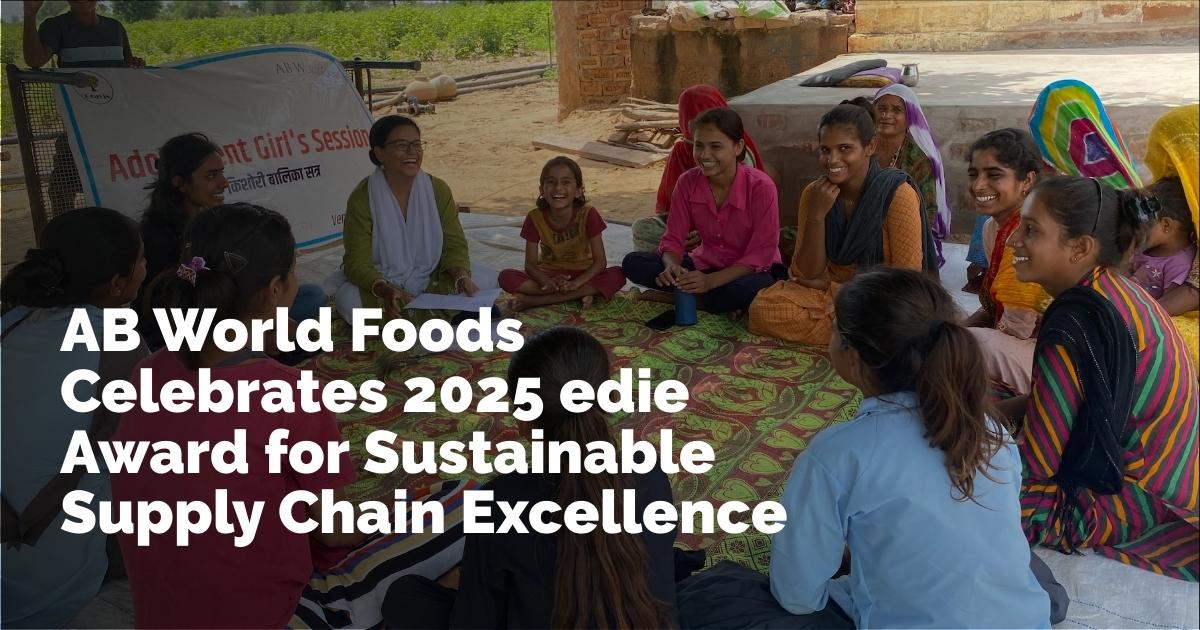Sustainable Initiatives in the Spice Industry: A Focus on AB World Foods' Project SPICE
Overview of AB World Foods' Project SPICE
In recognition of their efforts to improve the livelihoods of cumin farmers amidst the climate crisis, AB World Foods, known for brands such as Tabasco and Patak’s, was honored with the 2025 edie Award for ‘Supply Chain Sustainability Project of the Year.’ Their initiative, Project SPICE, targets water security and climate resilience, addressing poverty among farmers while preparing for the environmental challenges ahead.
The Context and Need for Project SPICE
India stands as the world's leading producer of spices, with a significant portion of these being cultivated by smallholder farmers. Unfortunately, despite their pivotal role, nearly 25% of these farmers live below the poverty line, a statistic reported by India's Ministry of Agriculture in 2017. Recently, the plight of these farmers has been exacerbated by the impacts of the COVID-19 pandemic and climate change, which have disrupted weather patterns and water availability.
Recognizing these challenges, in 2019, AB World Foods partnered with non-governmental organizations Mercy Corps and Gramin Vikas Vigyan Samiti (GRAVIS) to support 1,000 cumin farmers in Rajasthan, a region that produces about 25% of the company's spice supplies. Initially outside the company's direct supply chain, these farmers became the focus of Project SPICE, which aims to enhance their livelihoods and incomes through sustainable practices.
Goals and Evolution of the Project
The vision for Project SPICE evolved significantly by early 2023, aligning more closely with enhancing the climate resilience of farming operations. This transformation was critical to ensuring that farmer incomes were not adversely affected during periods of low rainfall. It also fostered knowledge exchange on more efficient agricultural practices and emphasized the importance of collaborative efforts to reduce production costs.
Under this initiative, 50 Farmer Interest Groups were established to offer sustainability-focused training and access to new services and markets. This collaboration led to the creation of two formal cooperatives, empowering farmers by pooling resources and increasing their negotiating power to improve productivity and income.
Environmental and Economic Strategies
To encourage environmentally sustainable farming, Project SPICE provides a price premium for farmers engaging in pilot projects like Integrated Pest Management (IPM). This approach reduces unnecessary pesticide and water usage while conserving biodiversity. Critical to this phase is a comprehensive water management plan, entailing the installation of 50 irrigation dykes to prevent water runoff from monsoons and retain soil moisture.
To further assist farmers, six village-level seed banks were established, providing access to climate-resilient and cost-effective seeds. Additionally, the project contributed to community infrastructure enhancements, including the installation of water storage tanks with bio-sand filters for clean drinking water.
Educational and Community Development Initiatives
Beyond agricultural support, Project SPICE invests in education and personal development. Educational sessions for teenagers focus on nutrition and personal health, while women receive financial literacy and community health training. Furthermore, small loans are available for women to start businesses, promoting income diversification.
Representatives from AB World Foods routinely visit the project to understand its impact on farmers and their communities. This initiative is positively affecting approximately 5,000 individuals, extending benefits beyond farmers to their families and communities. Over 200 training sessions in farming and business skills have been conducted, alongside specialized public health and financial education sessions for teenagers and women.
Impact on Farming Output and Economic Stability
The project has demonstrated tangible results, with model farms using climate-resilient cumin seeds witnessing a 32% yield increase. Additionally, farms previously reliant solely on rainwater, now equipped with irrigation dykes and boreholes, have seen an average 75% increase in yields. Many of these farms have begun supplying AB World Foods, establishing long-term supply chain relationships that promise economic stability.
Addressing Global Food Security Challenges
The importance of initiatives like Project SPICE cannot be overstated in the face of climate change's threat to global food security. The World Food Programme warns that without urgent interventions, hunger and malnutrition could surge by 20% by 2050. As smallholder farmers in India confront poverty, water scarcity, and erratic weather, disruptions in agricultural supply chains could endanger both farmer livelihoods and the food brands that depend on these resources.
Ultimately, projects that prioritize climate resilience and sustainable sourcing not only enhance farmer prosperity but also ensure long-term stability for global food enterprises. Such initiatives reflect a growing recognition among businesses of their role in supporting farming communities while securing their supply chains against future environmental uncertainties.
출처 : Original Source

